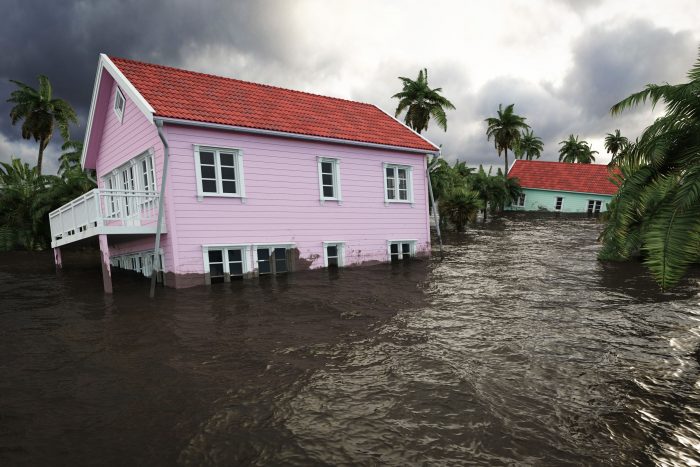
Water damage at your home or business can be one of the costliest disasters you will ever experience. And whether it comes in an instant due to flooding or broken pipes, or builds up over time due to slow leaks, one thing is for certain: the damage needs to be addressed as promptly as possible. At the same time, however, it is vitally important to understand that there are different types of water damage, to ensure that you react the right way, understand the risks, and get the help you need.
There are three main categories of water damage, defined by whether the water is clean, potentially contaminated, or dangerously unsanitary. Each of these water damage types comes with its own level of destruction and potential health risks and complications.
In many instances, unwanted water accumulation in your home or business will involve so-called clean water. This type of water usually comes from broken pipes, leaks in your ceiling, or problems with certain appliances. The water is considered “clean” because of its source, and the decreased likelihood of dangerous contaminants. As a result, most experts consider this to be the easiest type of water damage to manage, with far fewer risks for human and animal health.
Clear water damage can come from cracked or broken water lines, toilet tanks, drinking fountains in commercial buildings, leaky faucets, showerheads, and other clean water sources. Rainwater can also be a source of clear water damage if any area of a home or business has leaky roofs, poorly sealed windows, or other structural deficiencies.
Despite the lower level of risk, it is important to understand that clean water is still a danger. Left unaddressed, clean water can become contaminated, which may cause it to become a Category 2 risk that directly threatens human health. In addition:
Gray water is defined as contaminated water that contains some level of hazardous microbes. This type of water typically comes from certain types of appliances – like toilets, sump pumps, and washing machines that overflow or backup. Basically, any water that leaks or overflows after being used can be considered at least mildly contaminated, with potentially harmful microbes. As noted already, this category can also include formerly clean water that has been sitting for any prolonged period of time and subsequently became contaminated.
Black water damage is by far the most dangerous to humans. Black water is defined as any water containing serious contaminants and is most commonly the result of sewage waste or groundwater flooding. The water can contain anything from bacteria or other microbes to serious biohazards and can be deadly in certain circumstances.
In addition to flooding, other common black water sources can include overflow from any recently used toilet, grease or oil-filled water from a kitchen sink overflow, and other water sources that may contain decayed food, debris, or other materials where dangerous microbes reside.
As noted, black water is extremely hazardous to human and animal health. For example:
Of course, black water can also damage your home and belongings, so it is only natural to instinctively reach for towels or a mop to clean up any flooding. While experts discourage self-cleanups in any of these water damage situations, that advice is particularly relevant when dealing with contaminated water. Always contact a professional restoration company to handle any flooding or other water-based damage.
When dealing with water damage of any kind, rely on experienced experts to resolve the problem. These professionals understand how to address every type of water damage and can restore the damaged area in a safe and effective way. That process includes:
When disaster strikes, make sure that you get the help that you need to address any serious water damage. That is the best way to avoid unnecessary risk from contaminated water, thoroughly clean and dry your home or commercial property, and protect yourself and others. Call Ross Cleaning and Restoration today to learn more about serious water damage and how we can help.
Ross Restoration is proud to be one of the best Fort Wayne home restoration companies operating in this area. Our cleaning and restoration services are second to none, and customer satisfaction is always our top priority. At Ross, our customers are like family – and we want our family to enjoy homes that are free from dirt, debris, fire and water damage, and anything else that might diminish your quality of life.
2025 S Anthony Blvd Fort Wayne, IN 46803
We service the Fort Wayne and surrounding areas including: Albion, Auburn, Bluffton, Butler, Decatur, Huntington, Kendallville, Markle, Monroe, Roanoke, Leo-Cedarville, Columbia City
Submit a Comment